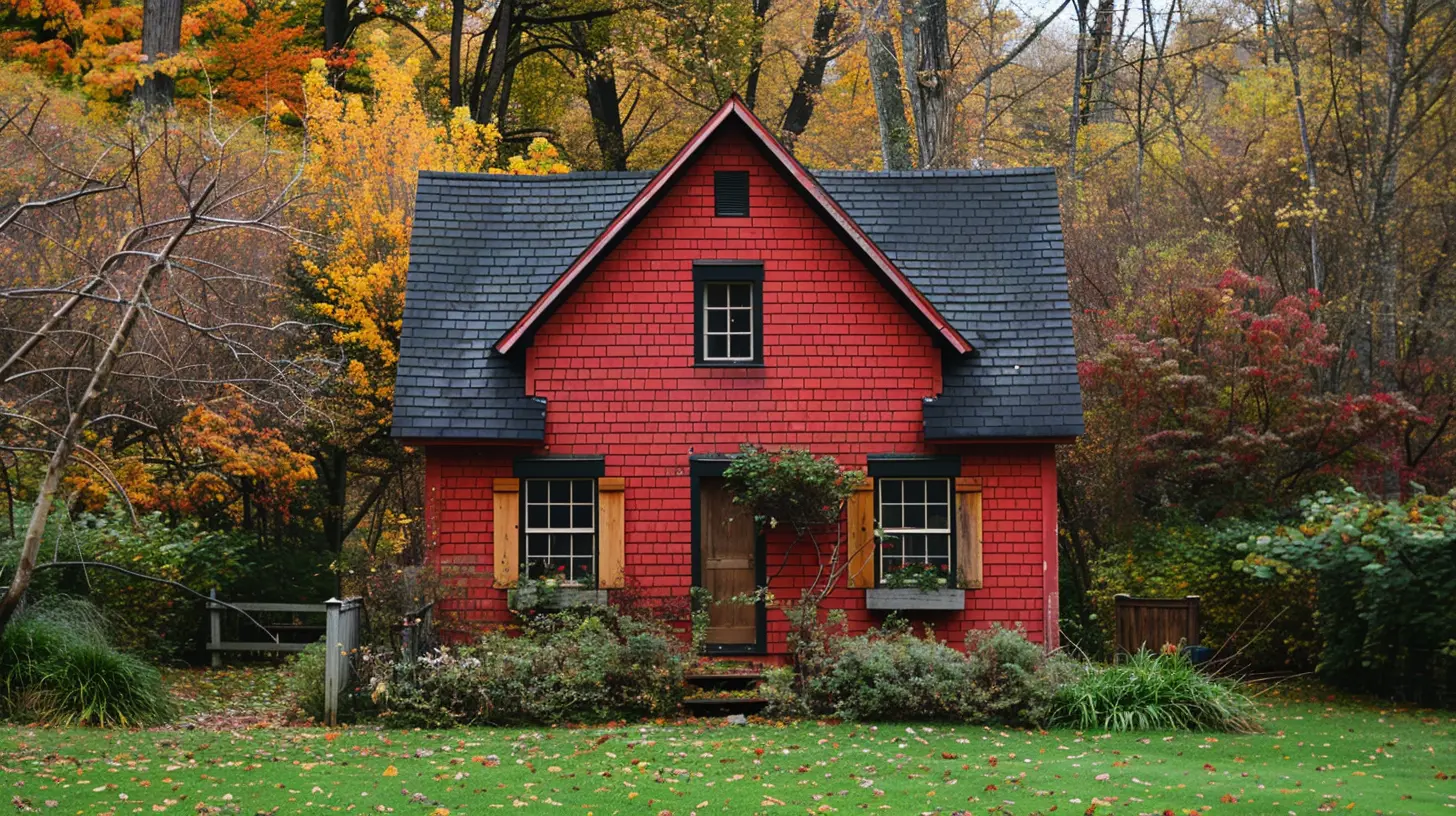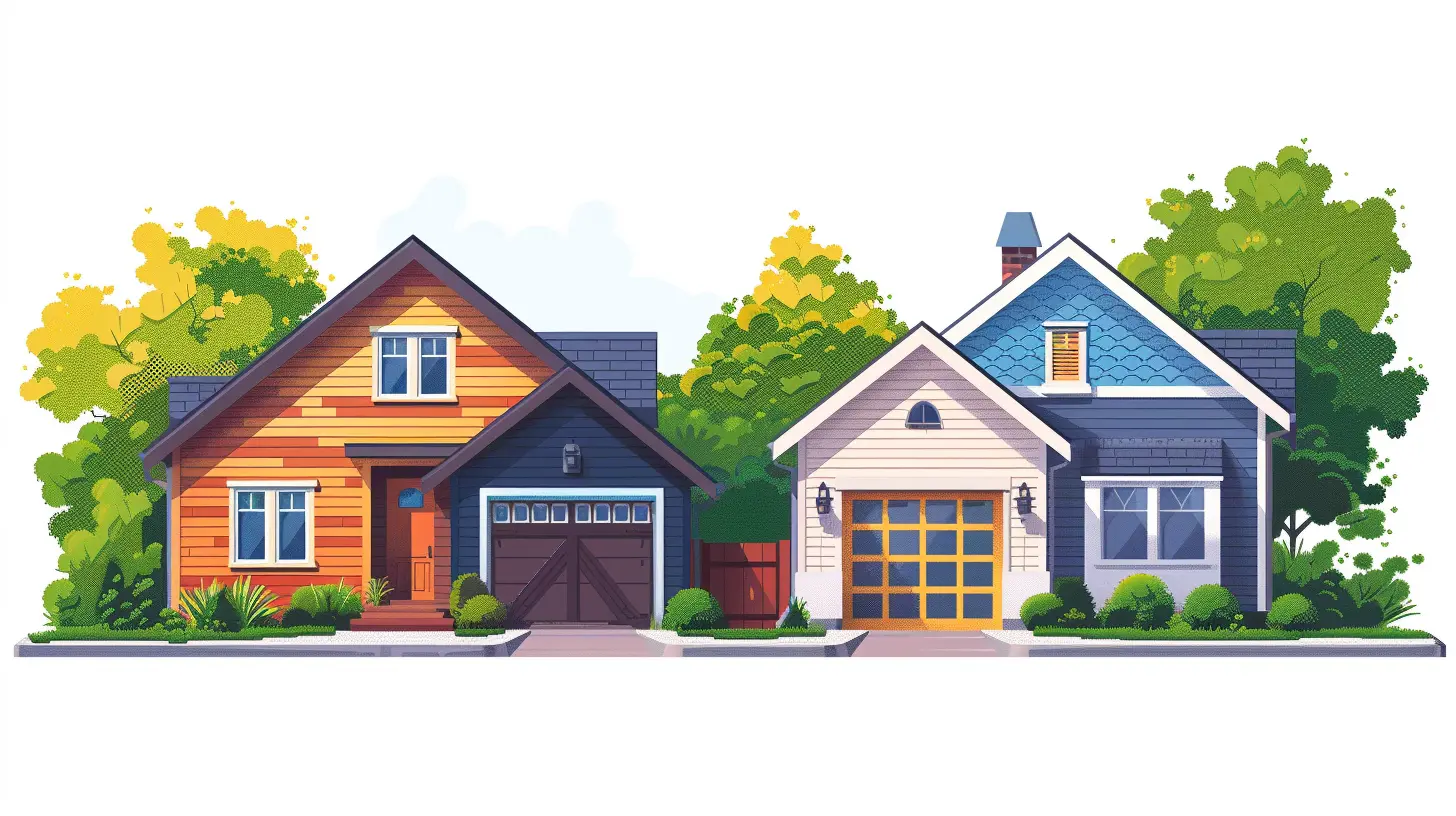Understanding Mortgages: Fixed vs. Variable Rate Loans
2 October 2025
Mortgages can be, well, confusing. If you're diving into the world of homeownership—or even just considering it—you're probably coming across terms like “fixed-rate” and “variable-rate” loans. And you might be wondering, “What’s the difference? Which one’s better for me?”
Let’s break it down in a way that actually makes sense. No complicated lingo, no finance degree required. Just you, me, and some plain-English mortgage talk.
What is a Mortgage, Anyway?
Before we jump into fixed vs. variable, let’s pause for a sec—what is a mortgage?A mortgage is basically a giant loan you use to buy a home. You borrow money from a lender (like a bank or credit union), and in return, you promise to pay it back over time—usually with interest, of course.
But wait, there’s more: you don’t just borrow money and pay it back however you like. Mortgages come with terms, which include the interest rate. That rate plays a major role in how much your monthly payments cost—and that’s where fixed and variable types come into play.
Fixed-Rate Mortgage: What You See is What You Get
Let’s start with the fixed-rate mortgage. It’s like the “classic” mortgage everyone hears about.📌 What is a Fixed-Rate Mortgage?
A fixed-rate mortgage means the interest rate stays the same for the entire life of the loan. If you lock in at 5%, it stays at 5%—period. Your payment won’t change month to month. It’s predictable. It's stable.✅ Advantages of Fixed-Rate Mortgages
- Stability: Your monthly payments stay the same, no surprise increases.- Simple budgeting: Easier to plan your finances when you know what’s coming.
- Good for long-term plans: If you’re settling down for the long haul, this is a solid bet.
🚫 Disadvantages of Fixed-Rate Mortgages
- Higher initial rates: You might start off paying more compared to a variable rate.- Less flexibility: If rates drop in the future, you won’t automatically benefit. You’d have to refinance the loan, which costs time and money.
Who Should Go for a Fixed-Rate Loan?
If you’re the kind of person who doesn’t like surprises, fixed-rate is your friend. It’s also ideal if you plan to stay in your home for a long time. Think of it as the slow-and-steady tortoise—not flashy, but reliable.
Variable-Rate Mortgage: A Roller Coaster Ride
Now, onto the more unpredictable sibling—the variable-rate mortgage. Also known as adjustable-rate mortgage (ARM), this one changes over time.📌 What is a Variable-Rate Mortgage?
A variable-rate mortgage starts with a lower interest rate than a fixed loan—yes, lower. That’s the hook. But here’s the catch: after an initial fixed period (maybe 3, 5, or 7 years), the rate begins to adjust periodically based on the market.That means your monthly payment could go up. Or down. You're at the mercy of interest rate trends.
✅ Advantages of Variable-Rate Mortgages
- Lower initial rates: Usually starts off cheaper than fixed-rate loans.- Possible savings: If interest rates drop or you sell before the adjustment period, you could save money.
- Short-term appeal: Great if you don’t plan to stay in the home for long.
🚫 Disadvantages of Variable-Rate Mortgages
- Unpredictability: Your monthly payments can rise—sometimes by a lot.- Budgeting is tough: Hard to plan when your payment could change.
- Potential financial stress: Rate hikes can catch you off guard, especially if money’s tight.
Who Should Consider a Variable-Rate Loan?
These are better for folks who aren’t planning to settle in for many years. Maybe you’re buying a starter home, planning to relocate, or expect your income to rise significantly. It’s kind of like dating your mortgage, not marrying it.
Fixed vs. Variable: Side-By-Side Comparison
Let’s put them head to head. Here’s a quick snapshot:| Feature | Fixed-Rate Loan | Variable-Rate Loan |
|----------------------------|----------------------------------|-----------------------------------|
| Interest Rate | Constant | Adjusts after intro period |
| Payment Stability | Steady and predictable | Can fluctuate |
| Initial Cost | Generally higher | Generally lower |
| Risk Level | Low | Moderate to high |
| Best For | Long-term homeowners | Short-term or flexible buyers |
| Benefit When Rates Drop | Limited (via refinancing) | Immediate |
| Budgeting Ease | High | Low |
How Do You Choose the Right One?
So, how do you pick between a fixed and a variable mortgage? Let’s dig into some real-life questions you should ask yourself.🧠 How Long Do You Plan to Stay?
This is probably the biggest factor. If you’re staying for more than, say, 7 to 10 years, a fixed-rate might be smarter. If you’re moving within a few years? A variable rate could save you some cash.💰 How Comfortable Are You With Risk?
Are you cool with uncertainty, or does it stress you out? Variable loans come with risk. If you're a “plan everything to the penny” kind of person, that risk might not be worth it.📈 What’s Going On With Interest Rates?
If rates are low and likely to rise, fixed makes more sense. If rates are high and might fall? Variable could win. Keeping an eye on the broader economy helps you time your choice better.🛠 Are You Open to Refinancing?
With fixed-rate loans, refinancing is your only way to take advantage if rates drop. Are you willing to go through that process (and pay the fees)? If not, stick with something more forgiving.Pro Tip: Talk to a Mortgage Broker
Here’s the deal—mortgages aren’t one-size-fits-all. Everyone’s situation is different. Talking to a mortgage broker can help you understand what works for your circumstances. They’ll walk you through your income, goals, and the latest rates.Real-Life Scenario Time
Let’s say Jane and Ben just bought a house. They’re a young couple, newly married, and they plan to move in five years when Ben finishes school.A variable-rate loan with a 5/1 ARM (fixed for 5 years, adjusting annually after) could save them thousands in interest before they even hit the adjustment phase. If they move out as planned, they’ll never see a rate increase.
Now take Lisa. She’s a single mom buying her forever home. She wants to know exactly what her mortgage bill will be every month—no surprises. For her, a fixed-rate mortgage is peace of mind.
Different people. Different needs. Different loans.
Pros and Cons Recap: Quick Glance
Let’s do one more lightning-fast wrap-up.Fixed-Rate Mortgage Pros:
- Predictable payments
- Long-term stability
- Easier budgeting
Fixed-Rate Mortgage Cons:
- Higher starting rate
- No automatic benefit if rates fall
Variable-Rate Mortgage Pros:
- Lower initial cost
- Potential savings
- Great for short-term homeowners
Variable-Rate Mortgage Cons:
- Payment uncertainty
- Harder budgeting
- Potential for higher long-term costs
The Bottom Line
Choosing between a fixed and variable mortgage isn’t just about math—it’s about you. Where are you in life? What are your goals? How much risk can you handle?If you want predictability and long-term stability, go fixed. If you're flexible, short-term, or want to gamble (just a little!), a variable loan might suit you.
Whatever you choose, do your homework, ask lots of questions, and make sure you’re working with professionals who have your back. Because when it comes to something as big as your home, you want to feel confident—not lost in the weeds of complicated finance talk.
all images in this post were generated using AI tools
Category:
Financial EducationAuthor:

Zavier Larsen
Discussion
rate this article
1 comments
Isaac Bishop
When choosing between fixed and variable rate mortgages, assess your financial stability and risk tolerance. Fixed rates offer predictability, while variable rates can lead to savings if managed wisely. Ultimately, the best choice aligns with your long-term goals and market conditions—make an informed decision!
October 3, 2025 at 2:47 AM

Zavier Larsen
Thank you for your insightful comment! Assessing financial stability and risk tolerance is indeed crucial when choosing between fixed and variable rate mortgages. Making an informed decision can lead to better long-term outcomes.


